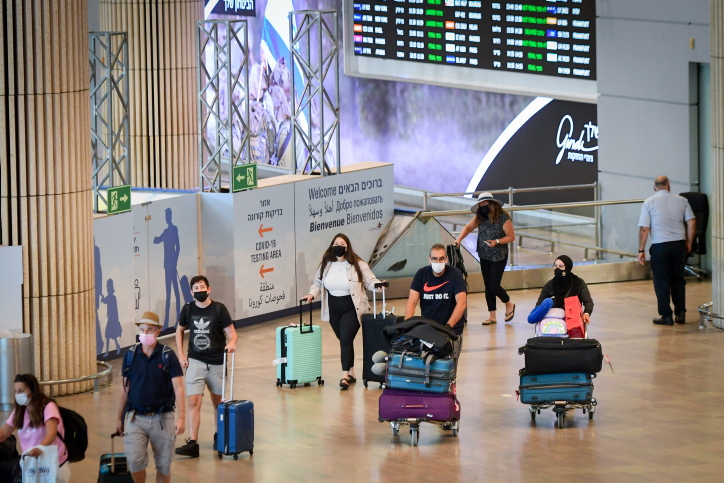After being shut down for months on end while trying to battle the pandemic, many countries in Europe are finally opening up once again.
Intrepid travelers will be pleased to hear that many of their favorite countries — including France, Greece, and Italy — are lifting bans on non-essential travel and welcoming back tourists.
However, new possibilities mean that there are also new entry requirements as well. For example, many countries now require travelers to be vaccinated, have a negative test, and/or go into quarantine.
Finding out more information and keeping these rules in mind will ensure a fantastic and stress-free trip — here is what you need to know:
Before planning a trip and buying tickets, travelers should make sure to check the entry requirements for each individual country that they plan to visit.
Although there are 27 member states in the European Union, each has its own rules for foreign visitors. In fact, entry requirements may vary even for neighboring countries!
For example, France and Spain are neighbors but have very different rules for arriving travelers.
Currently, France allows all fully-vaccinated travelers to enter the country as long as they can provide proof of vaccination and fill out a simple health declaration form.
On the other hand, Spain has recently enacted a new travel ban in place for all travelers who are not on the country’s ‘green list.’ The only exceptions are those traveling for necessary work (i.e. medical, diplomats, and transportation personnel), students, and those who have imperative family reasons.
The easiest way to find out a country’s entry restrictions is to visit or contact the Mexican embassy in that particular country (such as the Embassy of Mexico in France) or to visit the country’s Ministry of Health website.
It is highly recommended to bookmark these websites and check back daily, as a country’s epidemiological situation can change very rapidly, and new entry requirements can be added in the blink of an eye.
Travelers will typically be asked for a number of documents when traveling to Europe, including one (or more) of the following:
- Proof of vaccination
- Negative PCR or antigen test
- Certificate of recovery from COVID-19
- Passenger Locator Form (and/or health declaration form)
As of May, the European Commission has signed an agreement where member states could begin lifting entry restrictions for foreign travelers who are fully vaccinated. The rules stipulate that travelers should have received their last (final) vaccine dose at least 14 days before arrival.
One important thing to note is that the vaccine must be approved by the European Medicines Agency. This was stated by president of the European Commission Ursula von der Leyen, who noted that, “All 27 member states will accept, unconditionally, all those who are vaccinated with vaccines that are approved by EMA.”
The four approved vaccines on the EMA’s list include AstraZeneca, Moderna, Biotech-Pfizer, and Janssen (Johnson & Johnson). There are also three vaccines — CureVac, Sanofi-GSK, and Novavax — that are awaiting approval and may soon be added to the list as well.
At the same time, Mexico has two approved vaccines — AstraZeneca and Pfizer — which may be used to enter Europe.
The other four vaccines (CanSino, COVAX, India Serum Institute, and Sputnik V) are not on EMA’s list. It is recommended to check each individual country’s entry requirements, as some may accept those vaccines.
Those who are not fully vaccinated (i.e. who only have one vaccine or none at all) may still be able to enter some countries in Europe if they have a negative test result.
These countries accept PCR and/or antigen tests that were taken 72 hours before the traveler’s flight. However, it is also important to check, as some countries require tests to be done 48 or even 24 hours beforehand.
Last but certainly not least, a number of European countries have started to ask travelers to fill out health declaration forms. These are also called Passenger Locator Forms and function as a way to do contact tracing in case any of the passengers on the traveler’s method of transportation (i.e. airplane) were found to have the coronavirus.
Each country has their own version of a Passenger Locator Form, such as the Enter Croatia form for those who wish to travel to the Balkan country. A PLF form typically asks questions regarding the traveler’s personal and passport details (full name, contact information, passport serial number) as well as their accommodation address, vaccination status and/or negative test result, and date of arrival.
A handful of PLFs may also inquire about the traveler’s health, including if they have any symptoms or if they have been in contact with someone who may have had the coronavirus.
Once travelers have done their research and prepared all of the documents required by their destination(s), it’s time to have fun and enjoy a stress-free trip!










